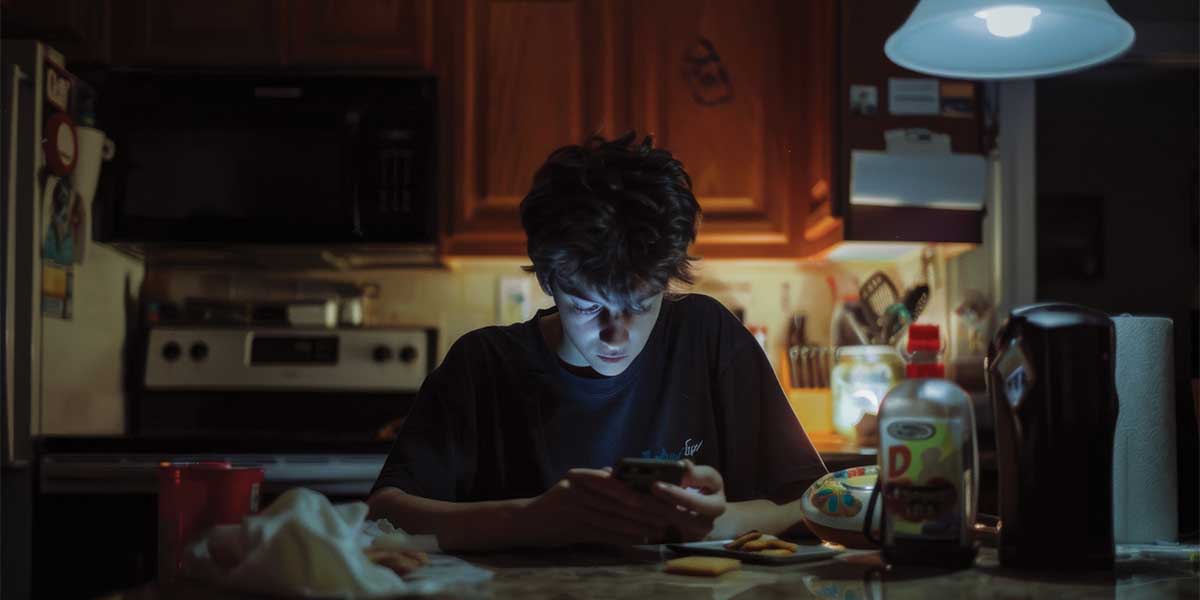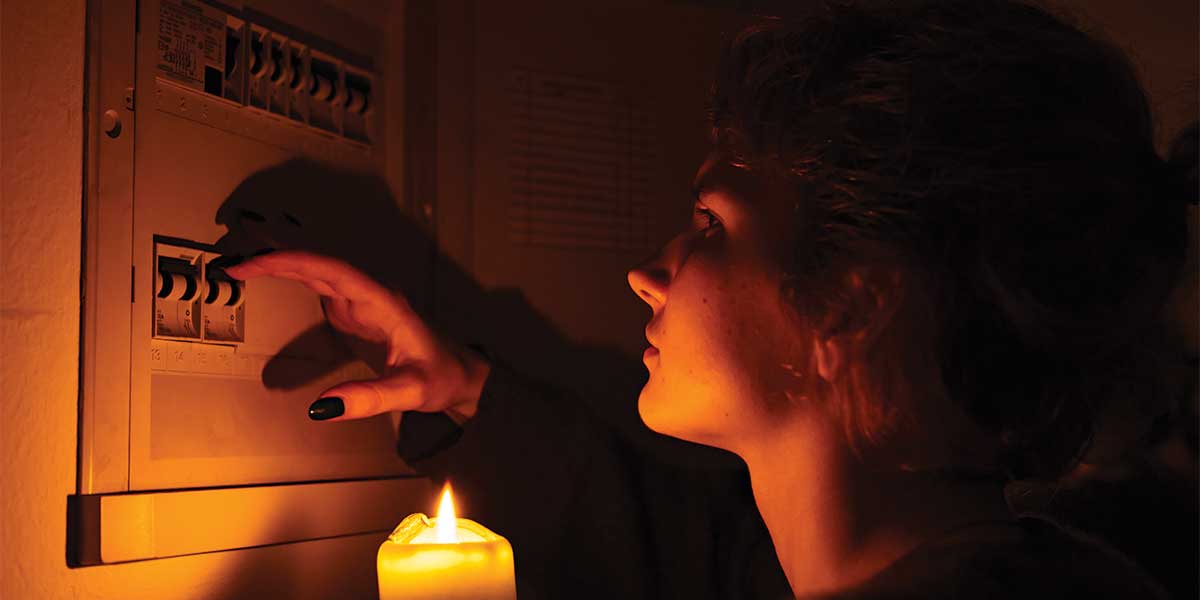Being prepared for a power outage is something many homeowners overlook until the lights suddenly go out. Whether you live in a city where outages are rare or in an area prone to storms and grid disruptions, knowing how to prepare can make the difference between staying safe and scrambling in the dark.
A proactive approach, complete with a solid emergency plan, an updated power outage emergency kit, and home safety measures, ensures your family can handle disruptions with confidence. In this guide, Expert Electric shares comprehensive strategies, safety tips, and practical preparation ideas to help protect your loved ones and your property when the power fails.
Why Preparing for a Power Outage Matters
When the electricity goes out, life can come to a halt. Heating systems, refrigeration, communication devices, and even medical equipment rely on consistent power. A power outage can last minutes, hours, or even days, depending on the cause, and the risks go beyond inconvenience:
- Food spoilage can cost hundreds of dollars if refrigerators and freezers sit idle.
- Safety hazards such as tripping in dark hallways or using candles improperly can result in accidents.
- Medical emergencies can arise if critical equipment (oxygen machines, CPAPs, etc.) shuts off.
- Home damage may occur if sump pumps or heating systems fail during extended outages.
Taking the time now to prepare ensures you’re not caught off guard later.
How to Properly Prepare for a Power Outage
1. Create a Detailed Emergency Plan
A family emergency plan ensures everyone knows what to do during a power outage. Involve every household member in the planning process so responsibilities are clear. Key considerations include:
-
Cause of the outage: Weather events, equipment failures, or accidents.
-
Location of your home: City homes may regain power faster than remote areas.
-
Family needs: Take into account the age, health, and mobility of household members.
-
Heating and cooling backup: Identify safe alternative methods to regulate temperature.
-
Shared housing or condos: Confirm whether your building has a dedicated outage plan.
Write down your plan and keep it visible, on the fridge or in a family binder. Review it regularly to update emergency contacts and procedures.
2. Build a Power Outage Emergency Kit
A well-stocked emergency kit is non-negotiable. According to BC Hydro, a complete kit should include:
-
Flashlights and lanterns
-
Extra batteries
-
Bottled water (at least 4 liters per person per day)
-
Non-perishable food
-
First aid supplies
-
Battery-powered or crank radio
-
Portable cell phone charger
-
Blankets or sleeping bags
-
Entertainment (cards, board games, books)
Inspect and refresh your kit every six months to ensure batteries work and food/water supplies remain safe.
3. Prepare Your Home
Protecting your home against power surges and outages minimizes damage and inconvenience:
-
Use surge protectors on valuable electronics (computers, TVs, gaming consoles).
-
Keep flashlights in multiple rooms for easy access.
-
Preserve food by keeping refrigerator and freezer doors shut during outages.
-
Seal windows and doors to conserve heat in cold weather.
-
Install a generator for critical backup power.
Expert Electric specializes in generator installation and backup power solutions so your home remains functional during extended outages.
Power Outage Safety Tips During the Outage
Once the lights go out, safety should be your top priority.
- Stay Calm and Informed: Use a battery-powered or crank radio to stay updated on outage duration and weather conditions.
- Unplug Electronics: Prevent damage from power surges when electricity is restored.
- Avoid Candles if Possible: Use battery-powered lanterns instead to reduce fire risk.
- Check on Neighbors: Elderly or medically dependent neighbors may need assistance.
- Conserve Device Batteries: Only use phones for critical communication.
- Maintain Indoor Safety: If using a fireplace or wood stove, ensure proper ventilation. Never use barbecues or portable gas stoves indoors.
For extended outages, consider temporarily relocating to a warming center, shelter, or a friend’s home if safety is compromised.
Recovery After a Power Outage
When power returns, you’ll still need to take precautions:
-
Wait a few minutes before plugging in sensitive electronics to avoid post-outage surges.
-
Check food safety: If the refrigerator was above 4°C (40°F) for more than two hours, discard perishable items.
-
Restock your emergency kit: Replace any items used during the outage.
-
Inspect your home systems: Ensure appliances, sump pumps, and heating systems are functioning properly.

Long-Term Solutions for Power Outages
If you live in an area with frequent outages, investing in long-term solutions provides peace of mind:
-
Standby generators: Automatically restore power to critical systems.
-
Portable generators: Affordable options for short-term needs.
-
Uninterruptible Power Supplies (UPS): Keep computers and essential electronics running during short outages.
-
Home surge protection systems: Installed at your electrical panel for whole-home coverage.
At Expert Electric, we can assess your home’s needs and install the right backup power system to keep your family safe.
FAQs About Power Outages
1. How long should food last in the refrigerator during a power outage?
A refrigerator will typically keep food safe for about 4 hours if unopened, while a full freezer can maintain safe temperatures for up to 48 hours if kept shut.
2. Can I use a portable generator indoors during a power outage?
No. Portable generators must always be used outdoors at least 20 feet away from doors and windows to prevent carbon monoxide poisoning.
3. What should I do if I depend on medical equipment during an outage?
Have a backup power plan in place. This may include battery backups, a dedicated generator, or arrangements to relocate temporarily to a facility with power.
4. How do I report a power outage?
Most utility companies, such as Hydro One, provide outage reporting tools online or by phone. Keep your utility’s emergency contact number handy.
5. Should I turn off appliances during an outage?
Yes. Turning off major appliances prevents damage from surges when the power comes back on.
Final Thought
A power outage doesn’t have to leave you in the dark, literally or figuratively. With a well-prepared emergency kit, a clear household plan, and protective measures for your home, you can face outages with confidence. Long-term solutions like generators and surge protection add an extra layer of security for your family and property.
Preparation today means safety and comfort tomorrow. Don’t wait for the next storm to catch you off guard.
Contact Expert Electric
At Expert Electric, we’re here to help you prepare for and manage power outages with confidence. From backup generator installations to surge protection systems, our licensed electricians provide solutions tailored to your needs.
📞 Call us: 604-681-8338
📧 Email: info@expertelectric.ca


